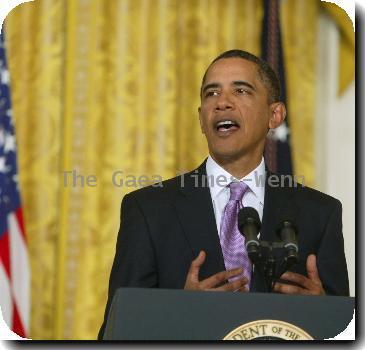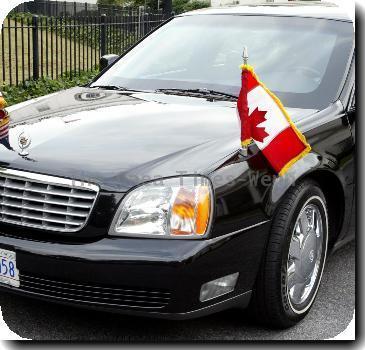Yemen’s most powerful radical cleric warns of foreign ‘occupation’ in growing terror fight
By Lee Keath, APMonday, January 11, 2010
Yemeni radical cleric warns of foreign occupation
SAN’A, Yemen — Yemen’s most influential Islamic cleric, considered an al-Qaida-linked terrorist by the United States, warned Monday that the U.S.-backed fight against the terror group could lead to “foreign occupation” of the country.
Sheik Abdul-Majid al-Zindani’s comments illustrate the pressure Yemen’s government is under to limit the U.S. role here even as Washington ramps up counterterrorism aid and training to help combat al-Qaida’s offshoot in the country.
Al-Zindani is emblematic of how — unlike in Iraq and Afghanistan, whose governments are bitter enemies of al-Qaida — Yemen’s beleaguered regime has built alliances with Islamic extremists to hold onto power. Some have al-Qaida connections, complicating the fight.
Branded a spiritual mentor of Osama bin Laden by the U.S., al-Zindani is highly influential among Yemenis. The United States has labeled him a “global terrorist,” alleging in a 2004 U.S. Treasury report that he helped fund and recruit for al-Qaida and that students from his Iman University were involved in past attacks.
Yemen’s government has openly allied with al-Zindani in the past and still courts his support. The deputy prime minister last week defended the cleric, saying he is not a member of al-Qaida.
Al-Zindani laughed Monday as he dismissed the U.S. terror accusations against him at a news conference at his home in San’a.
“It’s become well known among the people that a lot of lies” come out of Washington, said the cleric, his white beard dyed reddish-orange with henna in the style of Islamic hard-liners and wearing a traditional Yemeni knife stuck in the belt of his robes.
He denied knowing anything about al-Qaida’s activities in Yemen or having any influence on an American-Yemeni radical preacher, Anwar al-Awlaki, who is being hunted by Yemeni forces for alleged al-Qaida links. Yemeni officials say al-Awlaki may have met here with the man accused of the failed attempt to bomb a flight to Detroit on Christmas Day.
Al-Zindani carefully avoided any direct criticism of the San’a government’s alliance with Washington against al-Qaida. But he warned: “Yemen’s rulers and people must be careful before a (foreign) guardianship is imposed on them.”
“We accept any cooperation in the framework of respect and joint interests, and we reject military occupation of our country,” al-Zindani said.
He raised suspicions that the United States intends to send troops to seize the country’s oil resources and strategic Red Sea and Gulf of Aden coastlines if Yemen’s government collapses.
Pointing to the deployment last year of U.S. and NATO warships in the Gulf to protect shipping from Somali pirates, he said: “This mobilization is too large to just be for fighting pirates.”
“Many observers have said these forces have come to occupy Yemen’s sources of oil and Yemeni coasts,” he said.
President Barack Obama says he does not plan to send American combat forces to Yemen, something the Yemeni government insists it won’t allow. “I have no intention of sending U.S. boots on the ground in these regions,” Obama said in an interview with People magazine to be published Friday.
American counterterrorism aid to Yemen is expected to double this year to around $150 million, compared to none in 2008, the top commander in the U.S. wars in Afghanistan and Iraq, Gen. David Petraeus, told CNN in an interview Sunday.
“We have certainly seen significant commitment” from Yemen in the fight against al-Qaida, particularly in intelligence sharing, he said.
But San’a is a fragile partner in the fight. President Ali Abdullah Saleh’s regime has been drained by a bloody war with Shiite rebels in the north and clashes with secessionists in the south. The central government only has firm control around the capital, while heavily armed and highly independent tribes control large areas of the mountainous country.
To counterbalance his opponents, Saleh has at times sought the backing of extremists like the 60-year-old al-Zindani.
In his writings and fiery sermons, al-Zindani has called for Muslims to take up arms in jihad, or holy war, against the United States in Iraq and Afghanistan, saying Muslims must defend their land.
“If someone comes to kill you, won’t you kill him before he does? … All traditions and laws in the world give the right to anyone who is being attacked and killed to defend themselves,” he told reporters Monday.
Al-Zindani worked in Afghanistan alongside bin Laden during the war against the Soviets in the 1980s, organizing mujahedeen fighters. The United States has called him a spiritual mentor of the al-Qaida leader.
Yemen has been a source of thousands of mujahedeen who went to those war fronts to fight. The United States contends al-Zindani is a major inspiration for them and has been involved in recruiting fighters for training camps. It also accuses him of buying weapons for al-Qaida.
Al-Zindani heads Iman University in San’a, an institution of up to 7,000 students where hard-line Sunni ideology is taught. John Walker Lindh, the American captured in 2001 fighting alongside the Taliban in Afghanistan, studied there briefly. The U.S. says students from the university killed three American missionaries in Yemen in 2002 — a claim al-Zindani denied on Monday.
Al-Zindani’s popularity and political position make him a key support for the government. He is a leading figure in the Islamic fundamentalist Islah Party, which was once allied with Saleh’s ruling party. More moderate figures dominate the party now and have steered it into opposition to Saleh, but al-Zindani and other Islamic radicals remain allied to the president.
Another visitor to al-Zindani’s Iman University — though never a student there — was the U.S.-born cleric al-Awlaki.
Al-Awlaki is popular among extremists for his calls in Internet sermons for jihad against Americans. Yemeni officials say he may have met with Umar Farouk Abdulmutallab in Yemen before the 23-year-old Nigerian allegedly tried to blow up a U.S. airliner on Christmas Day. Al-Qaida’s offshoot in Yemen is accused of plotting that attack.
Al-Awlaki also had e-mail contact with the accused Fort Hood shooter before he allegedly opened fire at the military base in Texas, killing 13 people. Al-Awlaki later praised the attack, and he has also praised al-Zindani’s writings.
Al-Zindani denied any involvement with the cleric. “I was never a direct teacher for Anwar al-Awlaki,” he said. “I am a general lecturer and a writer of books.”
The cleric avoided saying whether he thought al-Awlaki was involved in terrorism and declined to pass judgment on whether bin Laden is “good or evil.”
“That is for a court to decide,” he said, of bin Laden, adding with a laugh: “Anyone who is able to take him to court, they are welcome to.”
Tags: Afghanistan, Asia, Barack Obama, Central Asia, Iraq, Middle East, National Security, North America, San'a, Sana'a, Terrorism, United States, Yemen







